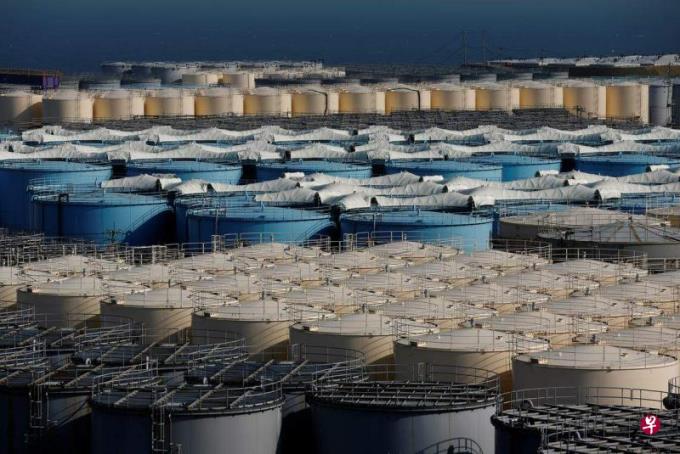
The International Atomic Energy Agency (IAEA) released a comprehensive assessment report of the Fukushima nuclear wastewater disposal in Fukushima in Japan on July 4th.EssenceThat is to say, the Japanese government seems to be imperative.
After the field inspection, the international atomic energy agency agrees that Japan is ready to discharge more than 1.3 million tons of nuclear waste water into the sea.Institutional Director -General Groos said the emissions of water treatment on people and the environment were insignificant.But experts from all over the world are inconsistent.
After the Fukushima First Nuclear Power Station was damaged in the earthquake and tsunami in 2011, Tokyo Electric Power Company injected a large amount of cooling water to prevent the melting of the fuel rod. By June 15 this year, the groundwater and rain were remitted.Thousands of storage tanks in the nuclear power plant have been stored in more than 1.3 million tons of treatment, and the water storage capacity is close to saturation.
As early as 2019, the then Minister of the Japanese Environment, Hawaki Yoshiko, has publicly said that the only solution is to discharge wastewater into the sea to dilute.In 2021, the Japanese government officially announced the drainage plan and began to actively strive for international public opinion support. At the same time, it also quickly launched the construction project of the underground pipeline of wastewater.However, after the decision was announced, protests at home and abroad never stopped.Focusing on the argument and doubts of nuclear wastewater discharge sea, not only highlights the lack of "nuclear credit" in Japan, but also reflects many reality of complex international relations.Different experts and different opinions and judgments have provided the basis for adhering to different positions for different governments.
This dispute involves not only science, but also the factors that are mixed with geopolitics and ideology.For example, the positions of governments in some countries turn greatly with the government's rotation and policy changes, as well as changes in the geopolitical situation.In this case, the IAEA report will inevitably cause some people to doubt that it is endorsement for Japan.This phenomenon of "butt determining heads" has led to simply science and non -ideological distortion, which has exacerbated the challenges of the world's cognition and response.
It must be pointed out that discharge nuclear waste water is the right of individual sovereign countries, and it must also bear relevant responsibilities. IAEA does not have the right to recognize or disagree. What can do is to determine the standards that follow the established standards.Therefore, Gronci said helplessly: "This is a common approach, and many parts of the world do it. I have no magic wands to solve people's concerns and doubts at one time." As an exclusive agency of the United Nations, it is ensuring that it is ensuringNuclear energy security has an unshirkable responsibility.Therefore, in dealing with the issue of nuclear wastewater discharge in Japan, it is necessary to be transparent and fair.The agency stated that it will monitor the entire process of drainage in Japan until the last drop of water discharge, which is a responsible approach.
Nevertheless, what impact or destruction of nuclear waste water will have on the ocean ecology, and maybe it can only be known by long -term scientific monitoring, data collection and research.At the same time, it is inevitable that people's concerns about long -term hidden dangers are inevitable.This is not the worry of Qi people.It is an indisputable fact that the ocean is polluted by human behavior.The practice of constantly using the ocean as a garbage dump will definitely cause long -term scourge.But in this way, we must establish the correct worldview through scientific knowledge, and should not be faced with inexplicable fear of psychology.
Therefore, the treatment and emissions of Fukushima nuclear waste water once again aroused the special attention of the world's special attention to marine pollution.According to IAEA, nuclear power plants around the world have the practice of discharging wastewater, but in the end, how to safely deal with nuclear waste water and other nuclear waste in all countries, it is rarely known, which has also aroused the world's attention to nuclear power power safety.Human beings are now troubled by climate change issues, and they are also trying to find and develop to replace green energy. In some countries, such as Germany's retreat, it is still unrealistic to eliminate nuclear energy power generation at this stage.It is unscientific to completely denial because of an accident.With the development of science and technology, in addition to solar energy, wind energy, and hydrogen energy, there may be a day -to -day green nuclear energy.Therefore, while paying attention to nuclear energy security, we should also look at the future development of nuclear energy more rationally.


